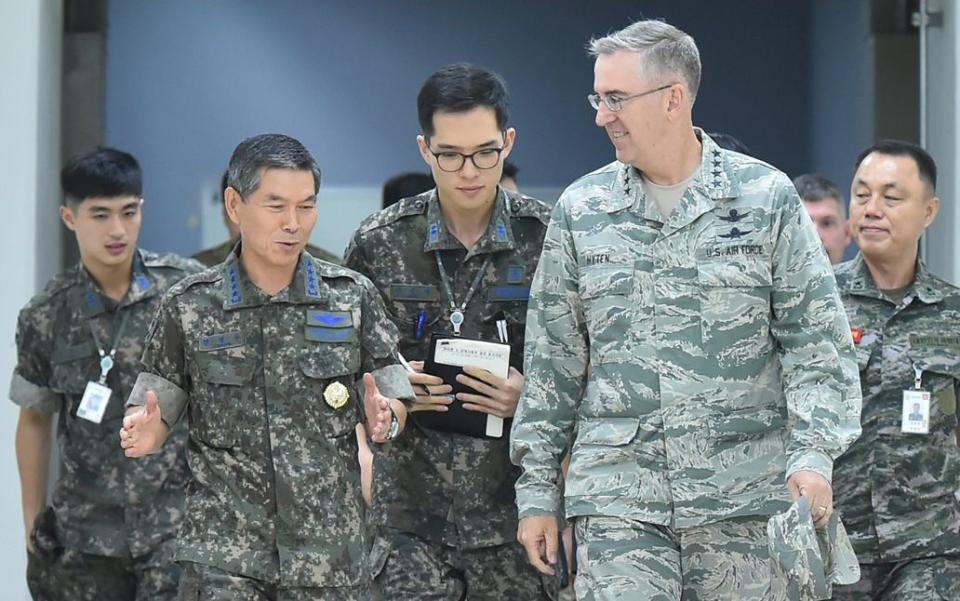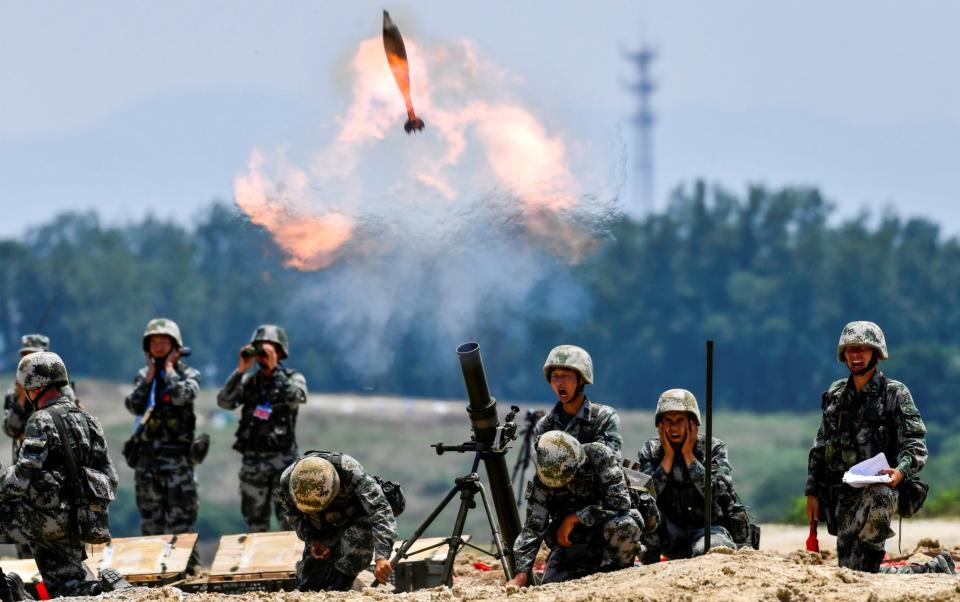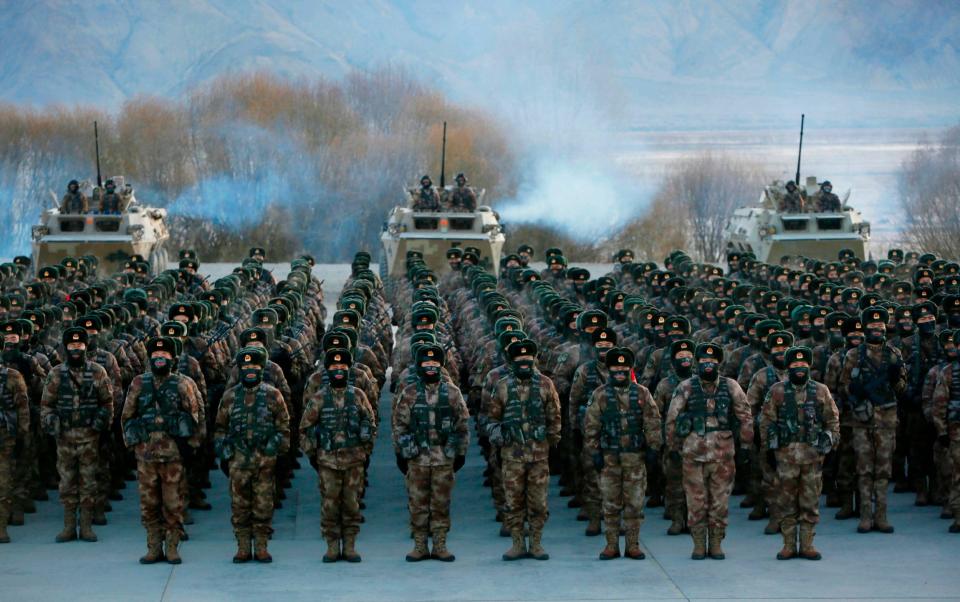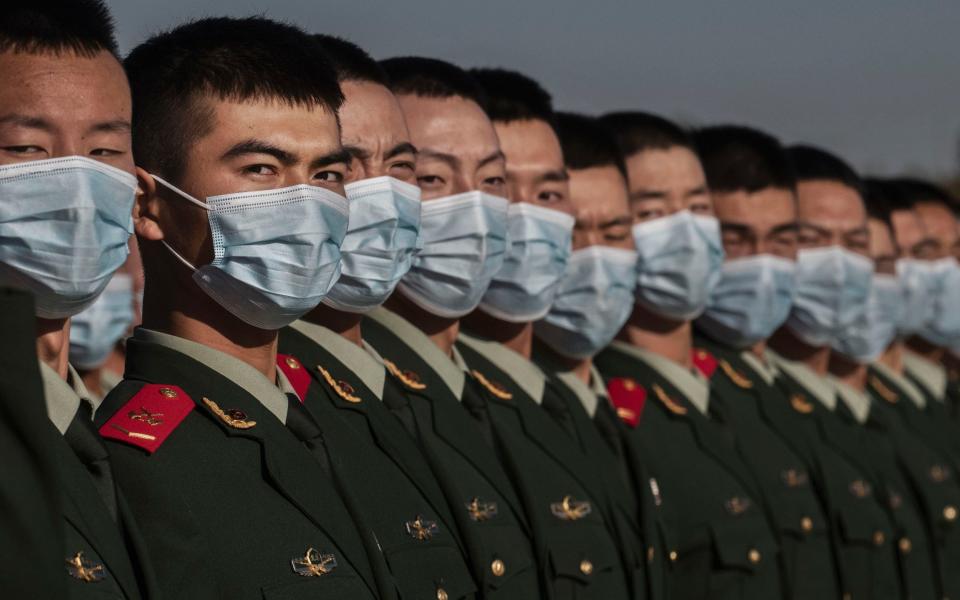British soldiers to access classified data straight from Pentagon in a future war with China

British soldiers will be given access to a US "combat cloud" the Pentagon hopes will revolutionise the way it fights in any future war with China, America's second-most senior military commander has said.
The Pentagon currently has an "over-classification problem" which is not allowing it to take advantage of its allies' capabilities, and their access to real-time US intelligence should be expanded, according to General John Hyten, vice chairman of the Joint Chiefs of Staff.
Under the plan, allied soldiers would be able to use their personal biometrics to log in to US information systems during a conflict.
It follows a disastrous classified Pentagon wargame, involving hundreds of senior US military personnel, in which America was crushed in a hypothetical battle with China over Taiwan.
General Hyten revealed that US information systems were knocked out at the start of the wargame, and that its strategy of massing forces in one place left them a sitting target.

He said: "Without overstating the issue, it failed miserably. An aggressive 'red team' that had been studying the United States for the last 20 years just ran rings around us. They knew exactly what we were going to do before we did it.
"What happens if, right from the beginning, information is not available? And that’s the big problem that we faced."
As a result of the defeat in the simulation in October, the US is changing guiding principles that have for decades governed how it has conducted conflicts.
The overhaul is called "Expanded Maneuver" and the aim is to have it in place by 2030, General Hyten told the National Defense Industry Association's Emerging Technologies Institute.
One technology that the US is aiming to develop is reusable rockets able to deliver up to 100 tons of cargo, including vehicles, to battlefields within an hour by flying through space.
The US Air Force aims to spend $50 million researching the project next year and the rockets would ultimately be operated by the Space Force established by Donald Trump.


America's ability to keep its forces supplied in a conflict has not been contested since the Second World War, but General Hyten said that the US was changing its "entire logistics approach".
A key element to fighting the next war would be achieving an "information advantage", and there should be a particular focus on better incorporating allies, he said.
The "combat cloud" system would share data across land, sea, air and cyber forces, and be safe against hacking.
General Hyten said the Pentagon had a "terrible time" trying to wargame the role of allies in future conflicts, and it was essential they be given more access to classified US information.
He said: "We have to address a classification problem because we are way over-classified.
"Even if we do that, we still have a problem because we like to label things 'SECRET NOFORN [No Foreign Nationals]'. Then, even our closest allies can't get on to our basic secret system SIPRNet."

SIPRNet is the computer system the Pentagon uses to distribute classified information.
With the combat cloud, "young soldiers" in a war would be able to "hook in" and access the latest data and plans.
"That applies to allies and partners too," said General Hyten. "Friends are our biggest advantage. But not being able to take advantage of friends is just wrong.
"The data has to flow everywhere. That will actually enable allies and partners to move forward."
US and allied forces would be able to use the combat cloud to coordinate attacks from different points, and also split up into small groups while maintaining access to the same information.
General Hyten said: "[In the past] we always aggregate to fight, and aggregate to survive.
"But in today’s world, with hypersonic missiles, with significant long-range fires coming at us from all domains, if you're aggregated and everybody knows where you are, you're vulnerable.

"Aggregating to fire, disaggregating to survive. That's the way it's going to be."
He said the US had a "shrinking advantage" over China, which was "running the race fast".
He added: "Holy cow, we've become bureaucratic in everything we've done over the last 20 years. That's OK when you don't have a threat staring you in the face.
"But right now we have significant threats staring us in the face, China in particular. Right now, they're building a military capability that is enormous, new capabilities in nuclear, space, hypersonic missiles, cyber.
"If you're competing with a nation for the future of the world, the goal has to be to have your liberal way of democracy work in the future."

 Yahoo News
Yahoo News 
